Read these books for specific ways to improve your thriller writing technique
Writers will give you lots of rules for thriller writing. The main ones are usually:
• Start with action
• Heap trouble on your hero
• Foreshadow something early that’s mysterious; reveal the truth about it near the end
• Have the clock tick down to a disaster which only the hero can stop
But let’s go beyond those basics to the actual style in which you write. This list includes writers whose work will help develop specific stylistic techniques for your writing whether you write crime thrillers, suspense, action thrillers, psychological thrillers or espionage fiction. These thriller writing examples don’t all come from thrillers. Stepping out of the genre can make you look at it anew or from a different angle. It’ll also give you thriller writing ideas when you’re stuck.
A Place of Greater Safety – Hilary Mantel
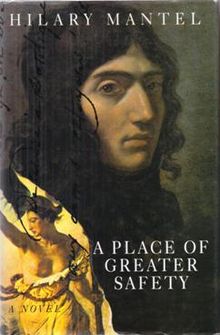
Best known for her historical novels of Tudor England, which include Wolf Hall, Mantel’s greatest work is A Place of Greater Safety, about three major figures in the French Revolution. Her ability to take a character’s reflective moments and riff on them is unparalleled. In one astonishingly well-written passage, Robespierre, the man usually thought of as the leader of “the Terror” of the guillotine, is at his desk in Paris, beset by political schemes and the pressure of keeping the revolution alive. Mantel shows us how his mind briefly moves nostalgically back to his time as a young lawyer in Normandy, with a memory of a long country walk under dark skies, the tall trees bending in the wind. It’s a moment of such peace, and one to which we can all relate. Where does your mind go when it tries to find shelter from the pressures around you? Take that moment and give it to a character. The result is a fine image, but also a doorway into deepening the character even further.
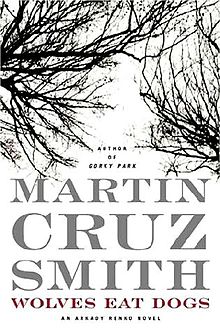
Wolves Eat Dogs – Martin Cruz Smith
The hero of Martin Cruz Smith’s wonderful series set in the Soviet Union and, later, Russia (with stops in Cuba, Germany, Alaska, and the Ukrainian backdrop for his Chernobyl novel Wolves Eat Dogs) is the closest today’s crime fiction gets to Raymond Chandler’s idea that “down these mean streets a man must go who is not himself mean.” In many ways, Cruz Smith is the closest among current crime writers to the keen yet elliptical style of plot development perfected by Chandler. In Chandler’s case, that was, as he admitted, largely because he didn’t really keep track of the plot. That’s not the issue with Cruz Smith. For him, plot is secondary to the development of his central character. Sometimes I find myself reading one of his novels with intense pleasure and at the same time trying to recall what the plot is about. A key to the central character here is Renko’s voice. His apparently deep disillusion is something of a trick. Renko’s father was a Stalinist general and as an investigator he’s constantly measuring himself against that old bastard––and regretting the similarities he finds. He’s not a drunk like some of his colleagues or corrupt like the others: he’s a hard-edged idealist, like his father, who happens to have inherited the humanity of his mother. Cruz Smith’s Russia is the perfect backdrop for Renko’s tawdry shining armor. After the collapse of the Soviet Union, Cruz Smith has painted the breakdown of society better than any nonfiction or journalism I’ve read. This examination of a real society in crisis through fiction is something I’ve tried to do with my Palestinian crime novels. Look at the crises in your society and, instead of seeing it with the jadedness or anger that might engulf you when you read the newspapers, master it and defuse it––make it into a fictional scenario where you can at least make the bad guys pay.
Let It Come Down – Paul Bowles
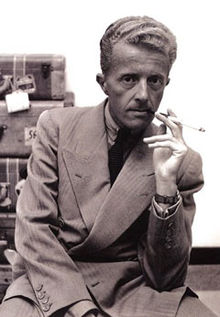
Writers look for resonance. You might say Bowles has us with his title alone, which resonates with doom even before he writes his first sentence of Let It Come Down. (It’s drawn from MacBeth. When the murderers sent by MacBeth come upon his friend Banquo, the lord says: “It will be rain tonight.” The murderer lifts his knife and says: “Let it come down.” Then he kills him.) But with this novel about Morocco, as in his more famous Algerian novel The Sheltering Sky, Bowles was even more resonant. When writing, he would often travel through North Africa. Each day, he would incorporate something into his writing that had actually happened during the previous day’s journey. Working in the Middle East, I often follow that technique, adding details from yesterday’s stroll through the Muslim Quarter of Jerusalem or a refugee camp in Bethlehem. Try this technique to get some immediacy into your descriptive writing.
The Long Goodbye – Raymond Chandler
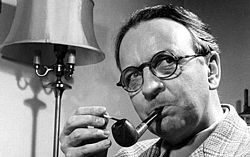
The Long Goodbye is the novel that Chandler labored over longest and thought his best. He was right. It exposes a deep emotional side to his great detective creation Philip Marlowe. Chandler was the greatest stylist of Twentieth Century American fiction (Yes, Hemingway lovers, you read that correctly.) Try this image, when a beautiful woman has just walked into a bar full of men and everyone falls silent to look at her: “It was like just after the conductor taps on his music stand and raises his arms and holds them poised.” Chandler inspires me to make every image in my book as good as that. Of course, I’m still trying…
The King Must Die – Mary Renault
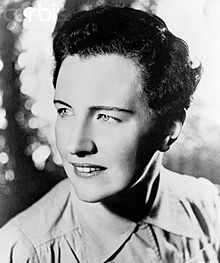
I was heading for Jordan to cover the last days of the ailing King Hussein for The Scotsman in 1999. I happened to pick up a used copy of The King Must Die–the title seemed appropriate. But as I waited in a rainy Amman winter for the poor old monarch to die, I discovered that Mary Renault had a capacity to describe the classical world as though she had lived through that era. Her novels are the best portrayal of homosexual love and of the great values of Greece in literature anywhere. She takes a contemporary facet of existence (homosexuality or simply sexuality) and imagines it into a character from another time. In doing so, she gives us a perspective on that facet that’s hard for us to notice with such clarity when it’s in a contemporary context. It’s one of the reasons I love historical fiction and historical thrillers. Try taking what you want to write about and superimposing it on characters from another age––it can sharpen the edges of what you want to say. You can do the same thing with genre. Take a story that’s often treated in romance fiction or sci-fi and turn it into a thriller; you’ll find compelling new angles.
The Cold Six Thousand – James Ellroy
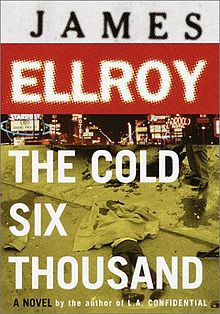
I love to see real characters from Hollywood and DC turn up in James Ellroy’s hardboiled poetic fiction. The story of CIA/FBI renegades in The Cold Six Thousand in the aftermath of the Kennedy assassination is perfect. I saw him read first when American Tabloid, the first in the trilogy of which Six Thousand is the second, was published. He blew me away. Try switching your language to a totally different syntax. It’ll either be a discovery, or when you revert to your more natural style you’ll see it more clearly and have a few new tricks to throw in. If you can find a better opening paragraph to a chapter than this one, let me know: “Heat. Bugs. Bullshit.” Dig it.
The Power and the Glory – Graham Greene
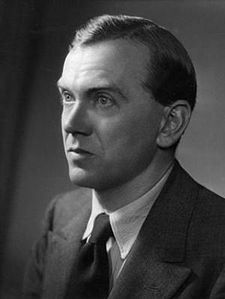
Greene went to Mexico to research a travel book, but he showed that journalistic research can turn into literature of great spirituality with this story of a drunken priest on the run. I try to remember that as I flick through my old reporter’s notebooks for new ideas for my novels. Greene’s is such a powerful examination of the loss of belief that it captivates even a non-Catholic, non-believer like me. The scene in The Power and the Glory where the desperate, drunken priest steals a hunk of meat from a stray dog is astonishing in its, well, power and not glory. The priest starts to beat the dog: “She just had to endure, her eyes yellow and scared and malevolent shining back at him between the blows.” Like Mexico under dictatorship. Like the priest before a disapproving God. Take a moment where you’ve experienced people or places that were different from you and roll them over in your head until a story comes out. That’s what Greene did.
 6 tips for writing dialogue that you haven’t heard before
6 tips for writing dialogue that you haven’t heard before